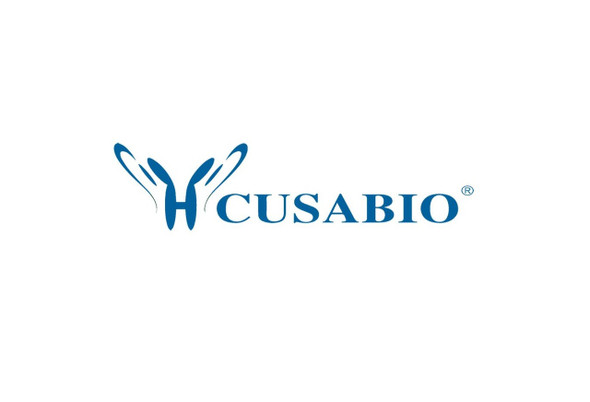Cusabio Human Recombinants
Recombinant Human Histone deacetylase 6 (HDAC6), partial | CSB-EP010242HU
- SKU:
- CSB-EP010242HU
- Availability:
- 3 - 7 Working Days
Description
Recombinant Human Histone deacetylase 6 (HDAC6), partial | CSB-EP010242HU | Cusabio
Alternative Name(s): CPBHM; FLJ16239; HD 6; HD6; HDAC 6; HDAC6; HDAC6_HUMAN; Histone deacetylase 6 (HD6); Histone deacetylase 6; JM 21; JM21; KIAA0901; OTTHUMP00000032398; OTTHUMP00000197663; PPP1R90; Protein phosphatase 1 regulatory subunit 90
Gene Names: HDAC6
Research Areas: Epigenetics and Nuclear Signaling
Organism: Homo sapiens (Human)
AA Sequence: MTSTGQDSTTTRQRRSRQNPQSPPQDSSVTSKRNIKKGAVPRSIPNLAEVKKKGKMKKLGQAMEEDLIVGLQGMDLNLEAEALAGTGLVLDEQLNEFHCLWDDSFPEGPERLHAIKEQLIQEGLLDRCVSFQARFAEKEELMLVHSLEYIDLMETTQYMNEGELRVLADTYDSVYLHPNSYSCACLASGSVLRLVDAVLGAEIRNGMAIIRPPGHHAQHSLMDGYCMFNHVAVAARYAQQKHRIRRVLIVDWDVHHGQGTQFTFDQDPSVLYFSIHRYEQGRFWPHLKASNWSTTGFGQGQGYTINVPWNQVGMRDADYIAAFLHVLLPVALEFQPQLVLVAAGFDALQGDPKGEMAATPAGFAQLTHLLMGLAGGKLILSLEGGYNLRALAEGVSASLHTLLGDPCPMLESPGAPCRSAQASVSCALEALEPFWEVLVRSTETVERDNMEEDNVEESEEEGPWEPPVLPILTWPVLQSRTGLVYDQN
Source: E.coli
Tag Info: N-terminal 6xHis-SUMO-tagged
Expression Region: 1-488aa
Sequence Info: Partial
MW: 70.1 kDa
Purity: Greater than 90% as determined by SDS-PAGE.
Relevance: Responsible for the deacetylation of lysine residues on the N-terminal part of the core histones (H2A, H2B, H3 and H4). Histone deacetylation gives a tag for epigenetic repression and plays an important role in transcriptional regulation, cell cycle progression and developmental events. Histone deacetylases act via the formation of large multiprotein complexes (By similarity). Plays a central role in microtubule-dependent cell motility via deacetylation of tubulin. Involved in the MTA1-mediated epigenetic regulation of ESR1 expression in breast cancer.By similarity3 Publications In addition to its protein deacetylase activity, plays a key role in the degradation of misfolded proteins: when misfolded proteins are too abundant to be degraded by the chaperone refolding system and the ubiquitin-proteasome, mediates the transport of misfolded proteins to a cytoplasmic juxtanuclear structure called aggresome. Probably acts as an adapter that recognizes polyubiquitinated misfolded proteins and target them to the aggresome, facilitating their clearance by autophagy.
Reference: "Three proteins define a class of human histone deacetylases related to yeast Hda1p."Grozinger C.M., Hassig C.A., Schreiber S.L.Proc. Natl. Acad. Sci. U.S.A. 96:4868-4873(1999)
Storage: The shelf life is related to many factors, storage state, buffer ingredients, storage temperature and the stability of the protein itself. Generally, the shelf life of liquid form is 6 months at -20?/-80?. The shelf life of lyophilized form is 12 months at -20?/-80?.
Notes: Repeated freezing and thawing is not recommended. Store working aliquots at 4? for up to one week.
Function: Responsible for the deacetylation of lysine residues on the N-terminal part of the core histones (H2A, H2B, H3 and H4). Histone deacetylation gives a tag for epigenetic repression and plays an important role in transcriptional regulation, cell cycle progression and developmental events. Histone deacetylases act via the formation of large multiprotein complexes (By similarity). Plays a central role in microtubule-dependent cell motility via deacetylation of tubulin. Involved in the MTA1-mediated epigenetic regulation of ESR1 expression in breast cancer.
Involvement in disease: Chondrodysplasia with platyspondyly, distinctive brachydactyly, hydrocephaly, and microphthalmia (CDP-PBHM)
Subcellular Location: Nucleus, Cytoplasm, Perikaryon, Cell projection, dendrite, Cell projection, axon
Protein Families: Histone deacetylase family, HD type 2 subfamily
Tissue Specificity:
Paythway:
Form: Liquid or Lyophilized powder
Buffer: If the delivery form is liquid, the default storage buffer is Tris/PBS-based buffer, 5%-50% glycerol. If the delivery form is lyophilized powder, the buffer before lyophilization is Tris/PBS-based buffer, 6% Trehalose, pH 8.0.
Reconstitution: We recommend that this vial be briefly centrifuged prior to opening to bring the contents to the bottom. Please reconstitute protein in deionized sterile water to a concentration of 0.1-1.0 mg/mL.We recommend to add 5-50% of glycerol (final concentration) and aliquot for long-term storage at -20?/-80?. Our default final concentration of glycerol is 50%. Customers could use it as reference.
Uniprot ID: Q9UBN7
HGNC Database Link: HGNC
UniGene Database Link: UniGene
KEGG Database Link: KEGG
STRING Database Link: STRING
OMIM Database Link: OMIM









